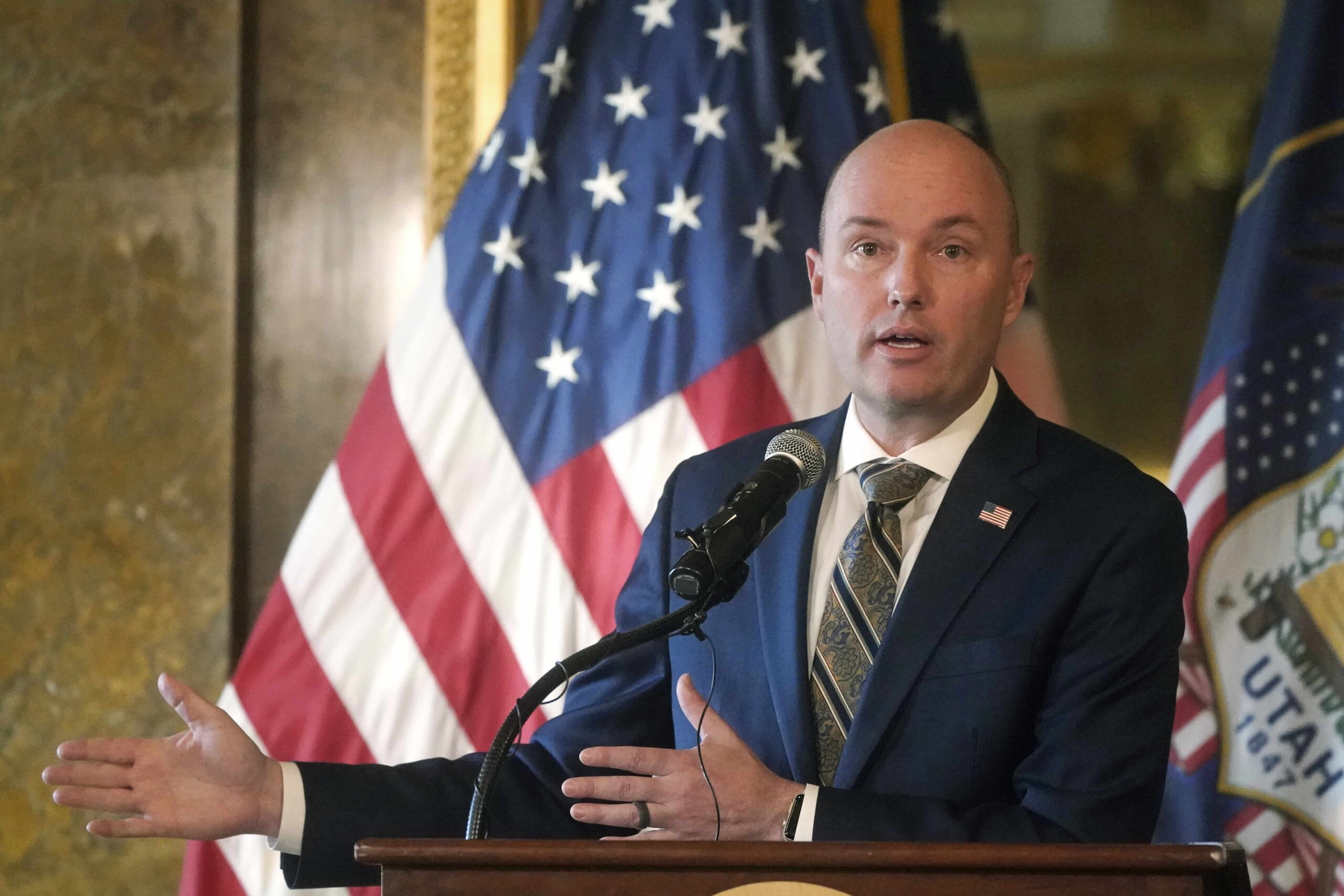Breaking with his party, Republican Gov. Spencer Cox vowed to veto an anti-trans sports bill that advanced both the Utah House and Senate on Friday. GOP lawmakers drastically altered the legislation at the last minute, totally banning trans girls from participating in school sports that match their gender identity.
The revisions came as a shock to Cox, who had spent months “engaged in behind-the-scenes negotiations” between LGBTQ2S+ advocates and conservatives, according to NBC News. The two sides had attempted to compromise on a bill that would permit trans female athletes to play under limited circumstances, but Republicans torpedoed the accommodations at the last minute.
“Anyone that’s interacted with the transgender community understands how amazing they are and how difficult it can be for them.”
Following last week’s vote, Cox said he was “very disappointed” with the outcome of the legislation and confirmed he would not sign it into law.
“Anyone that’s interacted with the transgender community understands how amazing they are and how difficult it can be for them,” he told the Salt Lake Tribune. “I don’t want to make things harder for them than they have to be.”
The original version of House Bill 11 came under fire from LGBTQ2S+ advocacy groups, many of whom opposed the legislation. Proposed by Rep. Kera Birkeland, it would have required trans student athletes to be evaluated by the “School Activity Eligibility Commission,” a government-appointed panel of physicians, mental health professionals and athletic trainers that would compare their physical attributes to a “baseline range” of other students their age and gender.
The commission would then determine if allowing the student to compete presents “a substantial safety risk to the student or others” or “give the student a material competitive advantage when compared to students of the same age.”
While that proposal was criticized for the scrutiny trans student athletes would be subjected to, the latest version calls for an outright ban of trans girls competing in school sports. Sen. Dan McCay introduced the ban during the last few hours of debate, saying that he believed finding a compromise “did not work out.” He claimed that it’s his “responsibility” as a father of four daughters to prevent them from competing against trans youth in sports.
“I’ve got to protect them,” McCay said in comments reported by the local media outlet Deseret News.
The updated language in the bill defines sex as a biological condition that is “determined by an individual’s genetics and anatomy at birth” and prohibits a “student of the male sex” to compete in school sports. The Utah Senate passed the bill 16-13, and the legislation sailed through the House by a 46-29 vote.
Iowa and South Dakota have already passed laws this year limiting the participation of trans youth in athletics. An Indiana bill passed the state’s legislature last week but has not yet been signed into law by Republican Gov. Eric Holcomb. Eleven states in total have laws on the books singling out trans athletes for discrimination, including Alabama, Mississippi and Texas.
Cox’s veto will make him just the second Republican governor to do so after South Dakota’s Kristi Noem refused to sign a trans sports ban into law last year. (Noem’s objections, however, were allegedly over “stylistic” concerns with the 2021 legislation, and she signed an anti-trans sports law in March after writing a new bill herself.)
This isn’t the first time Cox has spoken out against legislation attacking trans Utahns. Last year, he claimed that he would not sign a sports bill if it crossed his desk.
“If you have not spent time with transgender youth, then I would encourage you to pause on this issue,” Cox said in an emotional press conference, as the local ABC affiliate KTVX reported at the time. “We have so many people who are in a very difficult spot right now.”
Cox noted that few trans youth are even playing school sports in the state of Utah and called for a “better solution” to Republicans’ concerns. “These kids are, they are just trying to stay alive,” he said at the time.
Last year’s anti-trans sports bill, which was also proposed by Birkeland, would have allowed parents to bring lawsuits against their school districts if their cisgender kids are forced to compete against a trans athlete in school sports. In addition to fears of potential harm inflicted upon trans youth, opponents of the legislation cited probable backlash from major athletics organizations.
As another year closes with no end to the debate in sight, Cox remains hopeful that Utah can do the right thing for trans youth.
“We’re going to work through this,” he said in response to a question about what he would say to trans students in the state. “We’re going to find a good path, and there are a lot of people that really love and care about them.”


 Why you can trust Xtra
Why you can trust Xtra


